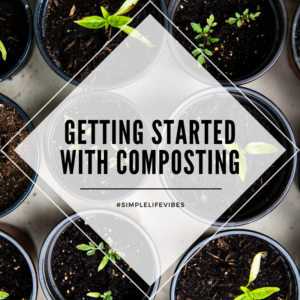Wondering What You Can Compost & What NOT To Compost?
 Composting often sounds idyllic, but when it comes down to it, we don’t always know where to start. Sure, we have a lot of food scraps, or even food waste, that we know could be put to good use, but it’s hard to know where to start. Living in the country, it’s a little easier for us because we can make a compost “pile” and not stare it in the face everyday. However, just because you live in the suburbs or the city, doesn’t mean you can’t be successful. No matter where you live, these simple, basic guidelines can help you out as you get composting.
Composting often sounds idyllic, but when it comes down to it, we don’t always know where to start. Sure, we have a lot of food scraps, or even food waste, that we know could be put to good use, but it’s hard to know where to start. Living in the country, it’s a little easier for us because we can make a compost “pile” and not stare it in the face everyday. However, just because you live in the suburbs or the city, doesn’t mean you can’t be successful. No matter where you live, these simple, basic guidelines can help you out as you get composting.
First off, why does composting matter?
- Compostable materials break down much faster in a composting situation than in a landfill. Trash gets compressed so much that the necessary oxygen and moisture doesn’t always reach these materials.
- Composted material can be used to rejuvenate gardens, helping you naturally fertilize and support growth of other plants.
- Composted materials help reduce the need for chemical fertilizers. Contrary to pop culture belief, you don’t need heavy duty fertilizers to support your garden. You can feed your garden in a natural way that doesn’t require more chemicals.
What Items You CAN Compost:
- Fruit scraps (peels, cores, stems)
- Leaves (tress/bushes)
- Cardboard (break down into smaller pieces)
- Coffee Grounds
- Cornstalks & Cobs
- Dryer Lint (from natural fibers)
- Hair
- Manure (avoid dog and cat manure though)
- Newspaper
- Sawdust and
What You Can Compost
shavings
- Pine needles
- Most nut shells
- Algae
- Lake Moss
- Eggshells
- Grass Clippings
- Shredded paper
Items You Should Not Compost:
- Cat Droppings & Kitty Litter
- Dog Droppings
- Fish Scraps
- Lime
- Grease
- Meat
- Fat
- Bones
- Charcoal Ashes
- Oils
- Diseased Plants
- Weeds
- Dairy Products
How to get started with composting:
If you’re just starting out, here are a few simple things you can do to get started.
- Find a small bucket that you can keep in your freezer for food scraps. This can be handy, especially in winter when you can’t always get out to your composting bin or pile.
- Crush up your eggshells and place them at the base of plants directly. You don’t even need a composting pile for these bad boys. The nutrients will slowly break down and help your plants right away.
- Black bins in direct sunlight can help keep the compost going even in colder temps.
- Compost piles should remain damp, but not wet to help with decomposition.
- Aerating or mixing up your compost regularly will help keep any big smells down.
- Think about alternating your layers of brown material (think paper, cardboard, dead leaves) and green materials (dead plants)
- Smaller pieces decompose faster. Break items down before you put them in a bin or pile.
- Relax! Even if you mess things up, nature will do its thing eventually and break down the materials. It just might take longer and not be as consistent.
Composting in the Suburbs
If you live in the suburbs and have a yard, you may or may not be able to have a compost pile that is open to the elements. Here are a few of the best composting bins you might consider.
Composting in the City
If you don’t have a yard, you can still compost:
- See if your city or town has a composting program like Denver does.
- Try a worm composter like this and let worms breakdown your scraps for you.
- Use a patio-friendly composter.
